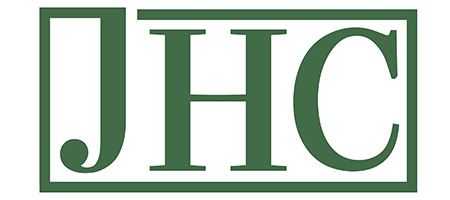Everyone knows that the American tax system is complicated, which is why it shouldn’t be any surprise that there are misconceptions about taxes that can lead to serious financial consequences. Not only can it cost you thousands in penalties, but it can also result in missed opportunities. If you make decisions based on hearsay instead of listening to the advice of a tax professional, you can fall into any one of these traps.

Here are some common tax myths that can cost you thousands.
#1: The Rich Don’t Pay Taxes in the United States
Like any other country with progressive income tax, Americans with a higher annual income will pay higher income tax rates. Half of American taxpayers pay 97% of all income taxes, with the top 1% of earners paying over a third of all income taxes.
There are some types of taxes where low-income earners contribute to a larger share of their total value. Some of them include the following:
- Payroll tax.
- Sales tax.
- Excise tax.
If you take all the taxes being paid in a single year, you will find that the American tax system is very progressive. So, higher income earners will pay the most in federal taxes.
#2: There’s No Law in the United States That Requires You to Pay Income Tax
While it’s important for taxpayers to ask questions and understand their rights, the 16th Amendment (which was ratified in 1913) allows Congress to impose an income tax. The Internal Revenue Service (IRS) also established the following:
- Imposing a tax on the taxable income of every individual.
- Defining taxable income as gross income minus any allowed deductions.
- Defining gross income as “all income whatever source derived.”
- Requiring the filing of returns by every individual with gross income for the year (with a few exceptions).
There have been a number of court cases that have represented every argument, and every court has upheld the power of the federal government to collect income taxes.
#3: A Large Tax Refund is a Cause for Celebration
Everyone likes to get a check in the mail. But if you’re one of the millions of taxpayers who got a tax refund last year, you should think twice before you decide to celebrate. If you get a large tax refund, it means that more money is being withheld from your paycheck than is necessary. In 2018, the IRS issued more than $390 billion in refunds to more than 120 million taxpayers.
A growing number of people got a refund because they got more back in tax credits than they owed in tax liability. Some may argue that it’s a safe and easy way to save money, but you should think about it another way. If you got a refund at the end of the tax year, it means that you’re giving the government an interest-free loan for the entire year. You would be better off putting the money that you’re overpaying in taxes into a savings account.
#4: Large Corporations Don’t Pay Any Taxes
In some years, there were corporations that didn’t pay any federal income taxes. But it wasn’t because they found “loopholes” in the system. There are a number of legitimate reasons why a “profitable” corporation shouldn’t have to pay income taxes. But for the most part, this misconception comes down to two factors. One is a misunderstanding of how corporate income tax is defined, and the other is a misunderstanding of how it’s taxed.
There’s a good reason to believe that many of the corporations that you think are profitable won’t do the same this year, because many companies report what’s referred to as “book income” on their financial statements (which follows typical American accounting standards that are designed to make the company look as profitable as possible).
The American tax code has different accounting rules. Government agencies use what’s referred to as “taxable income,” which looks at three important factors:
- A company’s net operating losses — The American tax code allows companies with losses on one tax year to deduct them from their profits in future tax years. This can keep corporations with long-term net losses from being taxed.
- Where a company earns its profits — Many large corporations that operate in the United States do business in many different countries, and the IRS offers credits for the taxes they have to pay to foreign governments.
- How much a company invests in equipment and machinery — The most important difference between book income and taxable income is in how capital investments (such as the purchase of new equipment and machinery) are treated. Typical accounting standards only treat a small percentage of capital purchases, but the American tax code allows corporations to treat a much larger percentage of the same investment.
If you’re looking for a CPA in Corpus Christi that can help you gain a better understanding of the American tax system, be sure to reach out to Jennings & Hawley.









